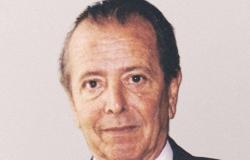The context:
CBEX surfed on the crypto wave in Africa to orchestrate a solid ponzi, disguised as a trading platform fueled by AI. Nearly $ 800 million flew, revealing how much enthusiasm for digital assets still exceeds, too often, regulatory safeguards.
A ponzi pyramid of $ 800 million
The CBEX platform, which promised three -digit yields, turned out to be one of the largest crypto scams in Africa. Active in Nigeria and Kenya, CBEX took advantage of a difficult economic context to attract thousands of victims, seduced by unrealistic promises of 100 % return on investment in 30 days. Behind this “technological” facade, no trading algorithm or artificial intelligence: only a classic ponzi, structured to divert the deposits upon arrival.
In April 2025, everything collapsed. Blocked withdrawals, deleted telegram channels, used users to pay new costs to unlock their funds. Panic scenes break out in Nigeria, especially in Ibadan, where furious investors have invaded the offices of CBEX. Some have shared their despair on social networks, revealing how entire savings were swallowed overnight. The damage is colossal: more than 1.3 trillion of Nairas flights, or about 800 million dollars.
The operating mode was sophisticated: CBEX generated a Tron portfolio for each user, then transferred the funds via a tangle of intelligent contracts, converted them into USDT or USDD, before sending them to crypto exchanges like OKX, Bitget or HTX. Independent analysts have found millions passing through Darknet, via channels linked to Huione Pay a well -known money laundering network in Asia. All supported by active telegram influencers, some even threatening the victims after the crash.
Crypto, scams and legislation: Africa seeks balance
CBEX is not an isolated case. This type of fraud prosperous on the absence of a clear legal framework. By pretending to be an entity linked to the China Beijing Equity Exchange, an institution, however, without any link with the Cbex Crypto abused the credulity of its victims. And like other pyramid patterns, the system operated on the new deposits used to remunerate the old ones, without any real trading activity.
Even more worrying, the CBEX affair may be only a fragment of a global network. Portfolios have been connected to Huione Guarantee, a Darknet marketplace pointed out by Chainalysis for its role in the sale of fraudulent technologies and whitening via IA Swaps. These opaque practices have highlighted the urgent need for regulation, even though Crypto adoption explodes on the continent.
Long before the explosion of the scandal, several African countries accelerate the establishment of a legal framework. Nigeria, the first victim of the CBEX affair, announced, last week, to work on theInvestments and Securities Act 2024a law that now classifies Crypyto assets as financial titles. This law marks a turning point: it introduces severe sanctions up to ten years in prison for promoters of fraudulent schemes. For its part, Rwanda requires compulsory recording of crypto providers while prohibiting mining and mixing services. Morocco, after six years of ban, is preparing a supervised legalization law. Finally, Kenya finalizes a project to structure the use of digital assets.
Morality of history: when it’s too good to be true, it’s that your wallet will cry.
Notice of non-responsibility
Notice of non-responsibility: In accordance with the guidelines of The Trust Project, BEINCRYPTO undertakes to provide impartial and transparent information. This article aims to provide exact and relevant information. However, we invite readers to verify the facts of their own and consult a professional before making a decision on the basis of this content.








